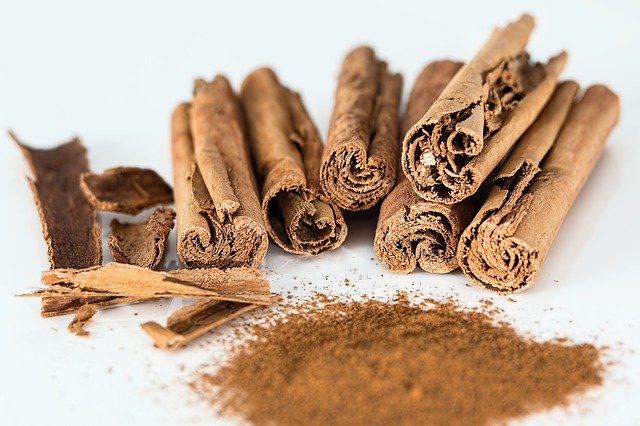Cinnamon Bark

Common Names: cinnamon, cinnamon bark, Ceylon cinnamon, cassia cinnamon
Background
- There are many types of cinnamon. Cassia cinnamon, native to China, is the most common type sold in the United States and Canada. Ceylon cinnamon, native to Sri Lanka, is common in other countries and is known as “true” cinnamon.
- Used as a spice for thousands of years, cinnamon comes from the bark of the cinnamon tree. Essential oils are made from the bark, leaves, or twigs of cassia cinnamon.
- Cinnamon has a long history as a traditional medicine, including for bronchitis.
- Today, some people use cinnamon as a dietary supplement for gastrointestinal problems, loss of appetite, and diabetes, among other conditions.
- Cinnamon is used in capsules, teas, and extracts.
How Much Do We Know?
- We have a fair amount of information on cinnamon from studies done in people.
What Have We Learned?
- Studies done in people don’t support using cinnamon for any health condition.
- A 2012 systematic review of 10 randomized controlled clinical trials in people with type 1 or type 2 diabetes suggests that cinnamon doesn’t help to reduce levels of glucose or glycosylated hemoglobin A1c (HbA1c), a long-term measure of glucose (blood sugar) control.
- A product containing cinnamon, calcium, and zinc didn’t improve blood pressure in a small study of people with type 2 diabetes.
- National Center for Complementary and Integrative Health (NCCIH)-supported research is looking at the effect of cinnamon on processes involved in multiple sclerosis.
What Do We Know About Safety?
- Cinnamon supplements appear to be safe for most people for short-term use if not taken in large amounts. Some people may have allergic reactions to cinnamon.
- Cassia cinnamon contains varying amounts of a chemical called coumarin, which might cause or worsen liver disease. In most cases, cassia cinnamon doesn’t have enough coumarin to make you sick. However, for some people, such as those with liver disease, taking a large amount of cassia cinnamon might worsen their condition.
Benefits of Ceylon cinnamon
Potential for diabetes treatment
Cinnamon is considered as an alternative treatment for diabetes mellitus. In one study, Ceylon cinnamon brought insulin levels in diabetic rats to close to normal levels. Other studies support the idea that Ceylon cinnamon is useful for diabetes treatment.
Ceylon cinnamon stimulates insulin-like activity. It reduces insulin resistance in the body. This helps glucose metabolize in the liver, according to research. Ceylon cinnamon is a promising treatment for people looking for alternatives to synthetic insulin therapy. To use cinnamon as an insulin stabilizer, at least 120 milligrams (mg) per day are recommended.
Contains cancer-fighting enzymes
Ceylon cinnamon contains anti-inflammatory, antioxidant, and antimicrobial effects. These properties mean Ceylon cinnamon supports your immune health. Ceylon cinnamon was part of a study that showed it enhanced antioxidant enzyme activity. This means it may prevent or treat certain types of cancer.
This is good news for people who are looking for dietary supplements that can help prevent their cancer from growing. You shouldn't experiment with cinnamon to treat your cancer without speaking to your oncologist first.
Helps manage blood pressure
All varieties of cinnamon contain cinnamic acid. It has anti-inflammatory effects. The anti-inflammatory property helps blood flow through the body and puts less strain on the heart.
Research on Ceylon cinnamon dates back to 1975. The research concluded Ceylon cinnamon could help blood pressure. Weakening of the heart due to problems in the cardiovascular system often causes heart disease. Ceylon cinnamon supports cardiovascular function and contributes to healthy heart function.
Aids in Alzheimer's prevention
Cinnamon appears to improve how the brain responds to insulin. The metabolic effect also makes Ceylon cinnamon useful in neurological conditions, like Alzheimer's disease, researchers theorize. Studies that show a connection between diabetes and Alzheimer's support the idea Ceylon cinnamon may help halt Alzheimer's onset.
Ceylon cinnamon may help control high blood glucose levels in the brain. Hyperglycemic episodes happen in people with diabetes mellitus. This can contribute to cognitive decline. Cinnamon's properties help make sure blood glucose levels don't rise too fast.
Forms and doses
Cinnamon is found in the inner bark of the cinnamon tree. The bark dries into curly segments called "quills." Quills are identified as cinnamon sticks.
Ceylon cinnamon is available in many products. Most cinnamon supplements on store shelves are the cassia variety. You may have to call manufacturers to see if the cinnamon you're getting is Ceylon. It's hard to tell what kind of cinnamon you're dealing with if it's ground cinnamon. A fine spice supplier or upscale culinary store will typically carry powdered Ceylon cinnamon. It's also available online.
Besides powdered cinnamon, Ceylon cinnamon is available in capsules to take by mouth. Some people boil cinnamon sticks in water, add honey or lemon, and drink as a tea. Ceylon cinnamon is good for making "cinnamon water." It doesn't carry the toxicity risk of cassia cinnamon.






